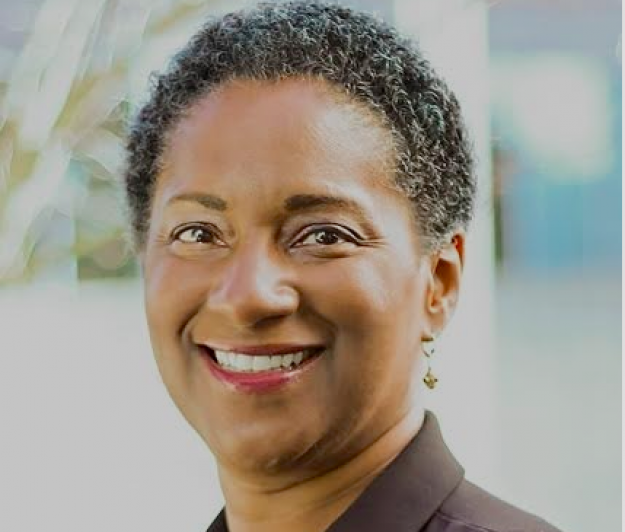Look for a spark in young women with an interest in technology, CEO says

Education has meant a lot to Jessie Woolley-Wilson, who was brought up by a Haitian immigrant whose convictions about education and responsibility helped propel her to where she is today — the president and chief executive officer of DreamBox Learning, a Bellevue, Washington-based software provider.
After graduating from the University of Virginia, she earned an MBA from Harvard Business School. In 2012, she was named one of Forbes’ “Impact 15” in education for her work at DreamBox, which concentrates on mathematics education at the elementary and middle school level.
In an interview with EdScoop, Woolley-Wilson talks about her passion for the power of technology in learning, about how she found a career in education technology and about overcoming barriers young women may face in pursuing tech careers.
EdScoop: Talk about your background and what propelled you into education technology?
Woolley-Wilson: I’m the daughter of a Haitian immigrant who came to the United States in 1956, and he would say he came equipped with his family, his faith and his education. So education was a very big part of our upbringing. I spent time in my youth tutoring kids; my parents tried to cultivate that sense of responsibility.
I think what landed me in education technology was an opportunity to work at Kaplan [Test Prep] when they were trying to change from paper-and-pencil tests to digitized tests. It was that experience that helped me appreciate the remarkable power that technology had in learning.
During an internship between my first and second year [of business school], I worked for the D.C. Committee on Public Education. I left that experience believing that one of the best things business could do was to support both learners and teachers so it could actually give back to the art of teaching. When I was at Kaplan I got the distinct impression that if you could use technology to personalize and customize learning, then you had the opportunity to democratize learning opportunity. So I become very focused on how I could support technology in the learning sector.
Who encouraged you along your career path?
First, my parents. I remember when I told them that I was not going to go to a reputable consulting firm and was instead going to work for the D.C. Committee on Public Education, they said consider it a blessing that you found something you’re passionate about, that you’re walking away from money in order to have a big impact. The second was Joanne Gallo. She was a manager of mine when I … worked at Chase for a bit before business school. Joanne saw something in me that I don’t think I saw in myself and she encouraged me to apply to Harvard Business School. That was a good lesson for me.
I think the best teachers are teachers who see a spark in the kids in their classroom and they make sure that those kids know that they see it. I think that theme has carried through in all of my work in education technology and as a leader in education technology.
What challenges did you encounter?
One challenge was what do you do with an MBA in the education sector? That’s [considered] a trade degree among people who respect PhDs and master’s degrees. So having credibility was a challenge.
The second thing was suspicion around the kind of background I had in business. If you’re an MBA [people think] all you care about it monetization. It took some time to get people to believe that you actually cared about learning outcomes.
The third challenge, especially in the technology area, was that there weren’t that many women, period, let alone women leaders when I started so many years ago. I think when people thought about technology, they imagined a young man in a hoodie and pair of jeans doing interesting things at a hackathon. I think that image of technology is morphing and changing and more and more women are considering careers in education technology but we still have a long way to go.
What do you believe needs to change to ease the barriers to women?
We need to do more through mentorship and coaching. Ada Developers Academy is doing a lot to help encourage really capable women to bring their talent and their passions into technology. Early exposure to the relevance of technology to careers that are broad [can help]. Even if you want to study music, you’re going to be using technology to do it. You don’t only have to think about traditional pursuits like gaming, although that’s also morphing to be much more gender-inclusive than it was historically.
Technology infuses our lives every day. We have to make sure that when we’re recruiting women or exposing young girls [to technology] that we do it with a broad sensibility so they understand how important it is.
When I talk to young people and they ask, “What should I study?” I tell them you should make sure you study languages and study coding. We should see coding as an essential language and we should expose young kids to it. The people who can code and have facility with all these languages are going to be the people who will thrive in the economies of tomorrow.
What can ease the shortage of women in technology and tech startups?
I think we have to be intentional about looking for women. It’s not OK to say the only people that made it to your finalist round are men. If that’s happening, you should really scrutinize your recruiting methodology and make sure that people understand how important it is to your culture and to your success to have a diverse workforce. It doesn’t mean you hire for gender or hire for any other category but it means you’re exposing your recruiting staff and your hiring managers to a more diverse candidate pool.
[Also] we have to support initiatives that focus on diverse populations. I mentioned Ada Developers Academy. There’s another organization called Black Girls Code that’s doing a lot for women who happen to be minority women. We should support these organizations and highlight successful graduates from these entities so we can start to educate people who might not realize all the promise and all of the contributions that women can make in technology.
What’s your advice for young women who want to enter the tech sector today?
My best advice is to jump in fearlessly and jump in knowing that there are going to be mistakes. Part of figuring out what you want to do is understanding what you don’t want to do. Instead of sitting in the background and watching other people dive into technology-oriented careers, they should seek internships and mentors who are women or minorities in technology. And even if it’s a free internship, they should do it to get the exposure. They should investigate things like Black Girls Code and Ada Developers Academy and go to a codathon. They have to develop a network of people who will support their pursuits in technology.




